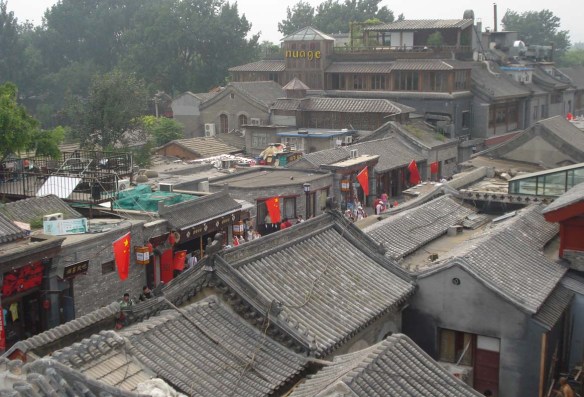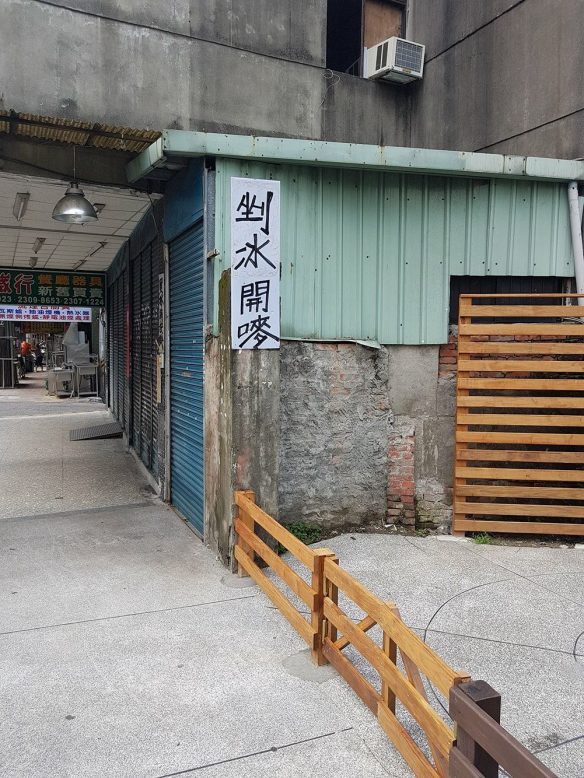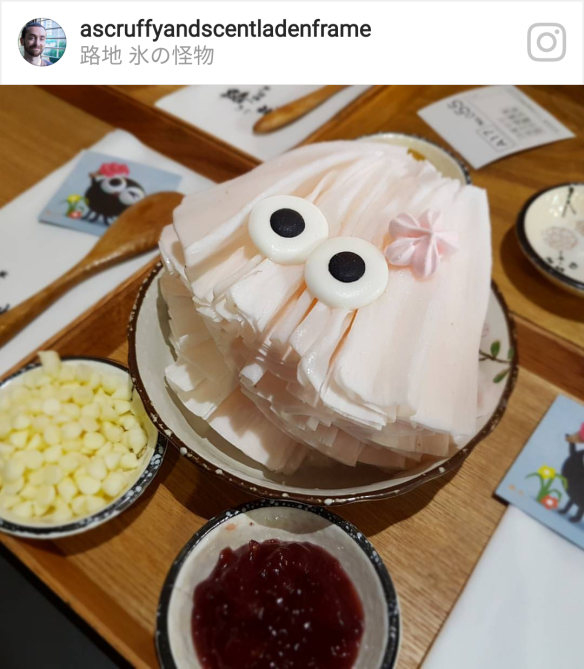When browsing a few of the Chinese-language posts that come up on my Facebook feed, I saw the following (public) post from China Times journalist Feng Kuang-yuan:
The first section of the post reads as follows:
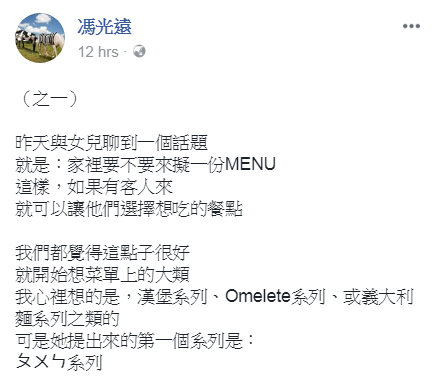
(之一)
昨天與女兒聊到一個話題
就是:家裡要不要來擬一份MENU
這樣,如果有客人來
就可以讓他們選擇想吃的餐點
我們都覺得這點子很好
就開始想菜單上的大類
我心裡想的是,漢堡系列、Omelete系列、或義大利
麵系列之類的
可是她提出來的第一個系列是:
ㄆㄨㄣ系列
(1)
Yesterday I was discussing something with my daughter
This was whether or not we should plan out a menu for our house
That way, if guests visit
We can offer them a choice of dishes
We both thought this was a good idea
So we started to think of different sections for the menu
I was thinking of things like a range of hamburgers, of omelettes, of pasta
But the first range she mentioned was
a range of leftovers
I found an article in the ET Today from 2014 which helped explain the meaning of the Taiwanese word 「ㄆㄨㄣ」 (pun/phun). It explains that Chinese character (本字) associated with the term is the popular surname 「潘」 (Pān in Mandarin), which originally meant “the water leftover after washing rice”. The term can now be used to refer to leftover foods or kitchen waste that is normally used to feed pigs, so another translation might be “swill” or 「餿水 sou1shui3」(food waste) in Mandarin.
This definition is also featured in the MOE Taiwanese dictionary as below:
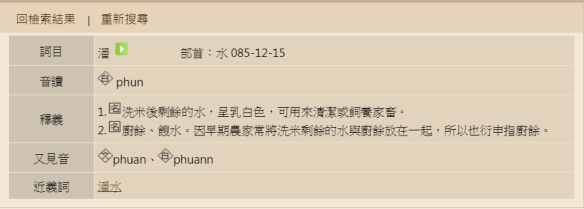
The character is pronounced “phun” (Click through to hear).
The ET Today article came out in the midst of the gutter oil scandals and apparently kids surnamed 「潘」 were teased at the time, being called 「ㄆㄨㄣ小孩」. Kids can be so cruel. A Taiwanese teacher cited in the article, suggested that an alternative character be invented to represent the word to avoid embarrassment for all the Mr and Miss Swills out there. He advocated the combination of the food radical 「食」 alongside 「賁」 (bēn in Mandarin). Although the latter means “energetic” on its own, he suggested it because it makes up the right part of the character 「噴」 (pēn in Mandarin), which means “to spray or spurt”:
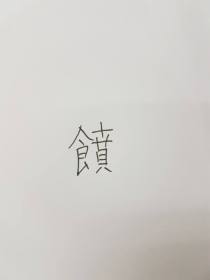
Afternote (Nov. 16, 2017): 饙 fēn (to steam rice) is in fact already a character, so in this case the Taiwanese teacher cited in the ET Today article is suggesting borrowing this character for a new purpose, rather than creating a new character.












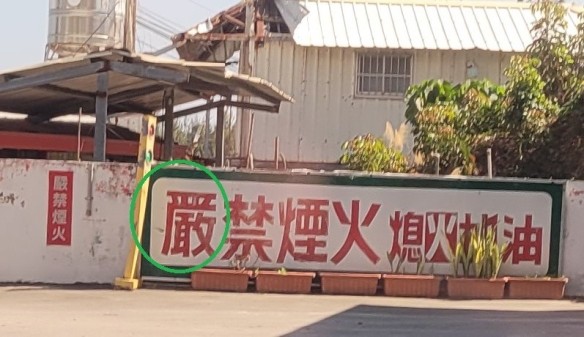
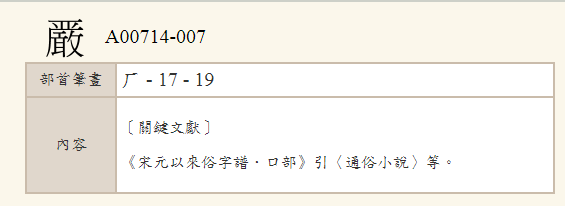

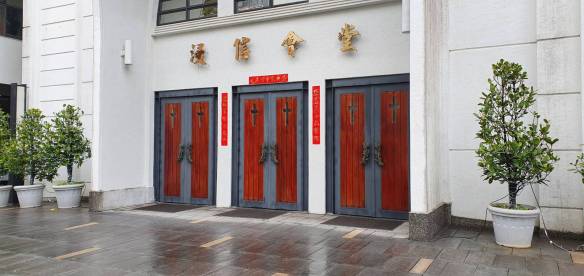



























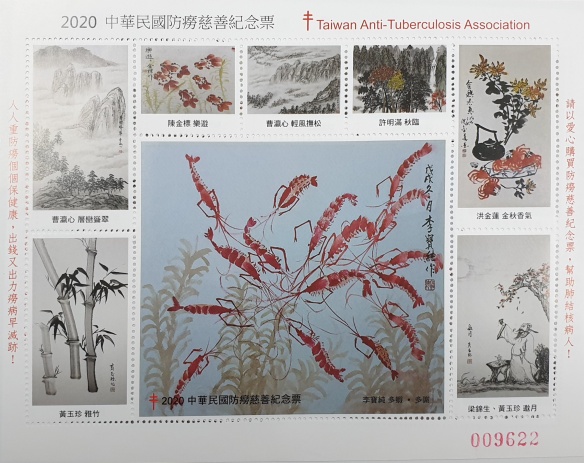
 Ko Chih-en (柯志恩), a KMT legislator-at-large, is another regular on TVBS’s political panel show ‘The Situation Room’.
Ko Chih-en (柯志恩), a KMT legislator-at-large, is another regular on TVBS’s political panel show ‘The Situation Room’.